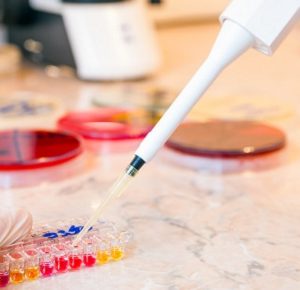January 23, 2018 (Medical News Today)
A group of researchers from Switzerland are now focused on improving ‘dendritic cell vaccines’, which are an important part of the immune system that capture antigens from foreign bodies and expose them the killer T cells and defuse their threat in the body.
These vaccines are not always effective, however, because the tumor antigens used to feed dendritic cells are lab-grown tumors and not a patient’s own tumor.
To combat this obstacle, researchers created artificial receptors called, extracellular vesicle-internalizing receptors (EVIRs). This process works by extracting dendritic cells from a patient and inserting EVIRs into them. When these new cells are placed back into the patient, they are able to recognize exosomes, types of small vesicle, which are thought to play some role in metastasis in cancer cells. EVIRs are able to trap exosomes therefore serving as a precise blueprint for dendritic cells to inform killer T cells of the exact location of tumors while also boosting the immune system’s response to cancer.
This new technology is another step closer to improving immunotherapy’s effectiveness in the fight against cancer.
This study was published in the journal Nature Methods.






